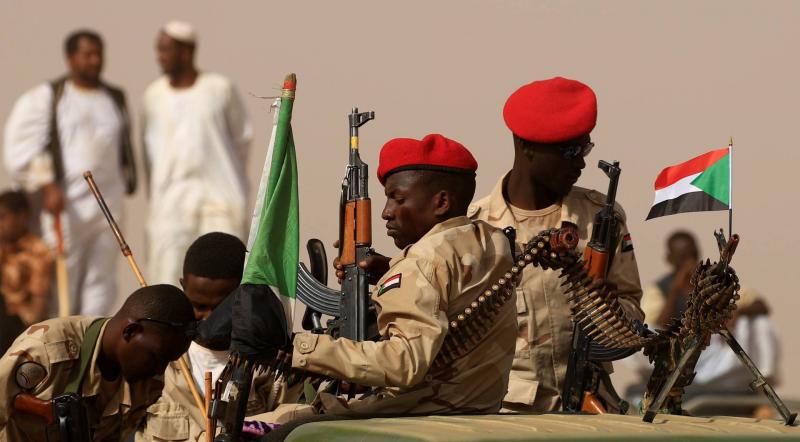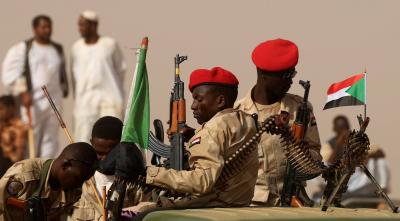Refugees fleeing the horrors of the civil war in Sudan to neighboring Ethiopia say they were forced to flee again, taking shelter in a forest and living along roadsides after repeated attacks leaving bullet holes in their tents. About 8,000 individuals have fled from the Komar and Olala refugee camps, according to representatives of the camps established by the United Nations in the Amhara region of northern Ethiopia, following repeated assaults last month, mostly by bandits. They originally escaped from the fighting that erupted between the Sudanese army and the paramilitary Rapid Support Forces in April 2023, which resulted in severe hunger in parts of the country and sparked accusations of ethnic cleansing in Darfur.
A young man speaking via phone said, “We left our country because we were afraid of stray bullets from the army and the Rapid Support Forces,” adding, “We sought refuge in Ethiopia to save our lives, and now we face the same danger.” He explained that he “first left the Sudanese capital Khartoum, then fled from the camps and sought refuge with others in a forest in Amhara where armed groups are fighting with the Ethiopian federal government in a separate conflict.” Images sent via WhatsApp and Telegram showed makeshift tents made from branches and fabric, with dozens of people including many children sitting out in the open along the roadside.
Like others, the young man spoke on the condition of anonymity for fear of retaliation. These reports highlight the limited options available to those fleeing Sudan as they seek refuge in countries grappling with their own conflicts and crises. The war in Sudan has caused the largest displacement crisis in the world, with more than 8.9 million people fleeing their homes, including 2.1 million who left the country, and over 122,000 heading to Ethiopia, according to the International Organization for Migration. The Ethiopian government’s refugee and returnees service did not respond to requests for comment. In early May, it stated that it was in contact with refugees to address safety and service concerns despite limited resources.
The United Nations High Commissioner for Refugees referred to a statement issued last week acknowledging security incidents and the existence of “extremely difficult” security conditions without providing further details. The statement mentioned that Ethiopian police had intensified patrols and that they continued to provide services in the camps, encouraging what they said were about 1,000 people outside the Olala camp to return. Médecins Sans Frontières, which runs a clinic near the camps, reported last week that one of its staff members was killed after armed men shot at a convoy.
Disaster after disaster, refugees now living outside the camps told Reuters that they face regular acts of violence. A member of the displacement coordination unit in Amhara spoke about the situation saying, “People are forced to go to the valley to bathe and wash clothes. But they either face theft, beatings, or daily kidnappings.” She added, “A disaster falls upon us repeatedly.” Cholera is spreading in Komar where there is at most one doctor available to examine patients, several refugees and a relief worker, who all requested anonymity, said.
Two refugees complained that the monthly food shipments sent by the United Nations World Food Programme are sufficient for less than two weeks. Three refugees stated that around 6,000 displaced persons in Komar and Olala left the camps in early May and marched together 170 kilometers to the UNHCR office in Gondar, the main city in Amhara, protesting their conditions. They added that police intercepted them, forcing them to flee to a forest near the Olala camp. The three explained that many of them began a hunger strike for 10 days due to a lack of supplies but suspended it after receiving donations from Sudanese abroad, the only aid they have received so far.
A member of the coordination unit mentioned that about 2,000 people who remained in Komar fled to a main road after armed men began shooting at the camp on May 1. She added that a few returned later and found bullet holes piercing the tents, convincing them that the armed men were targeting them. Relief workers, who requested anonymity, say insecurity and a lack of funds severely hinder relief efforts. According to the United Nations, only $400,000 of the needed funding for Sudanese refugees in Ethiopia has been delivered in response to a call seeking to raise more than $175 million.




